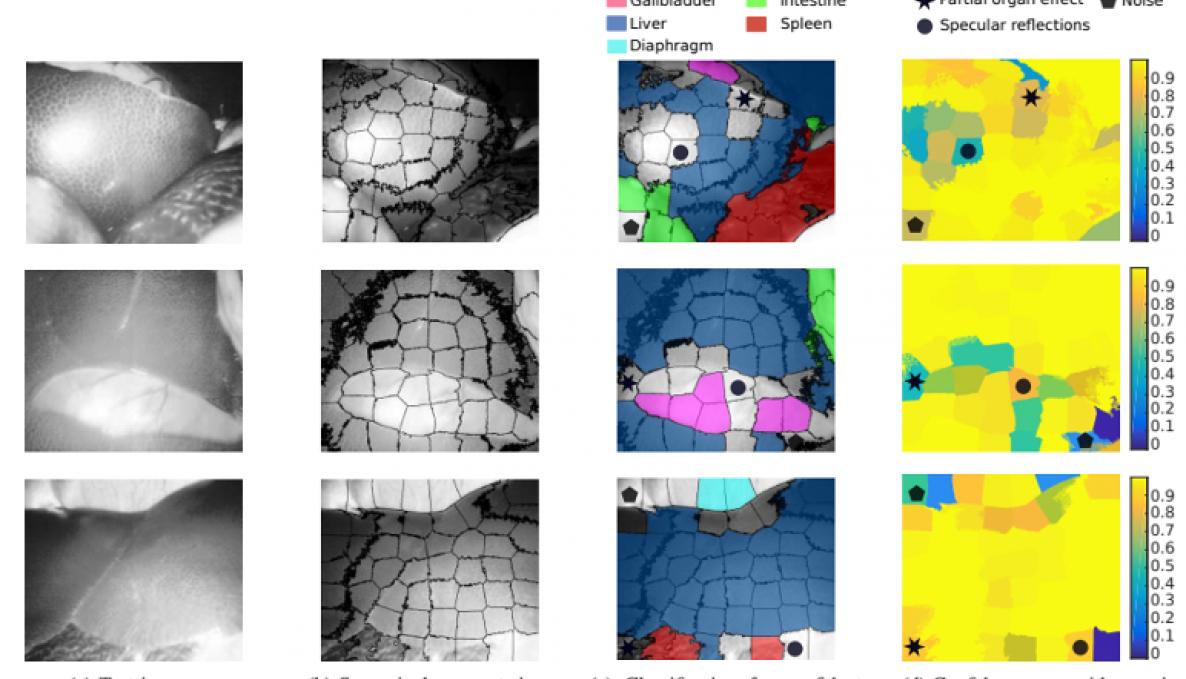Artificial Intelligence for Medical Image Analysis (AI-MIA)

The automatic analysis of medical images is today a topic of great interest for the scientific community. This analysis can provide clinicians with decision support, with the ultimate goal of guaranteeing patients an increasingly objective and personalized treatment path.
The intrinsic challenges of medical images make it difficult for traditional computer vision algorithms to identify accurately any anomalies in the image. Challenges include the high inter- and intra- variability, as well as the low signal-to-noise ratio (especially for some imaging modalities), the presence of several similar structures in the field of view, and the poor contrast of pathological tissues.
With the advent of deep learning, however, things changed, and today deep learning is able to tackle a number of challenges relevant to medical image analysis. Deep learning is a branch of artificial intelligence that, in the last decade, has shown enormous potential in the field of medical images, thanks also to the development of increasingly complex convolutional neural networks (CNNs). Classical tasks in the field include the localization, classification and segmentation of organs and tissues, but also registration, tracking and 3D reconstruction.
The aim of the AI-MIA lab research activities is to unlock the potential of deep learning for the analysis of a wide range of medical images (endoscopy, ultrasound imaging, magnetic resonance imaging, RGB-D imaging) to support clinicians during the actual clinical and surgical procedures. Specifically, the research activities include the development of advanced deep learning algorithms (including generative model and semi- and self-supervised learning). Particular attention is also paid to on-the-edge AI and distributed learning paradigms.
Principal investigator
Dr. Sara Moccia
e-mail: sara.moccia@santannapisa.it
PhD students
- Carolina Correira
- Daniela De Luca
Visiting PhD students
- Daniele Berardini
- Maria Chiara Fiorentino
Undergraduate students
- Chiara Baldini
- Manuele Palladino
Grants
- Principal Investigator (P.I.) for the project: “Riabilitazione e Valutazione degli Esiti Cognitivi Post Covid (RILEGO)”, funded by Regione Toscana during the call Bando Ricerca COVID-19 Toscana. The project aims at developing machine learning algorithms for the analysis of data acquired from robotic rehabilitation platforms used by subjects who have contracted the coronavirus disease (COVID-19)
- Co-Principal Investigator (co-PI) for the project: “An electrical stimulation-based solution to provide meaningful feedback to visually challenged people during obstacles detection in indoor and outdoor conditions (EU ZEN)”, funded by Andrea Bocelli Foundation (ABF). Specifically, the research activities aim at developing vision algorithms based on deep learning for the semantic analysis of the scene, with the ultimate goal of returning tactile feedback to visually impaired and blind people.
- Task leader for the project: “PERSONA: PERSonalized rObotic NeurorehAbilitation for stroke survivors", funded by Regione Toscana during the call Ricerca Salute 2018. The task concerns the development of machine learning algorithms to offer personalized rehabilitation treatments to post-stroke patients.
Selected publications
- Fiorentino, Maria Chiara, et al. "A deep-learning framework for metacarpal-head cartilage-thickness estimation in ultrasound rheumatological images." Computers in Biology and Medicine (2021): 105117.
- Casella, Alessandro, et al. "A shape-constraint adversarial framework with instance-normalized spatio-temporal features for inter-fetal membrane segmentation." Medical Image Analysis 70 (2021): 102008.
- Casella, Alessandro, et al. "Inter-foetus membrane segmentation for TTTS using adversarial networks." Annals of Biomedical Engineering 48.2 (2020): 848-859.
- Moccia, Sara, et al. "Preterm infants’ pose estimation with spatio-temporal features." IEEE Transactions on Biomedical Engineering 67.8 (2019): 2370-2380.
- Colleoni, Emanuele, et al. "Deep learning based robotic tool detection and articulation estimation with spatio-temporal layers." IEEE Robotics and Automation Letters 4.3 (2019): 2714-2721.
- Moccia, Sara, et al. "Uncertainty-aware organ classification for surgical data science applications in laparoscopy." IEEE Transactions on Biomedical Engineering 65.11 (2018): 2649-2659.
- Moccia, Sara, et al. "Blood vessel segmentation algorithms—review of methods, datasets and evaluation metrics." Computer Methods and Programs in Biomedicine 158 (2018): 71-91.
- Moccia, Sara, et al. "Learning-based classification of informative laryngoscopic frames." Computer Methods and Programs in Biomedicine 158 (2018): 21-30.
- Moccia, Sara, et al. "Computer-assisted liver graft steatosis assessment via learning-based texture analysis." International Journal of Computer Assisted Radiology and Surgery 13.9 (2018): 1357-1367.
- Moccia, Sara, et al. "Development and testing of a deep learning-based strategy for scar segmentation on CMR-LGE images." Magnetic Resonance Materials in Physics, Biology and Medicine 32.2 (2019): 187-195.
- Moccia, Sara, et al. "Toward improving safety in neurosurgery with an active handheld instrument." Annals of Biomedical Engineering 46.10 (2018): 1450-1464.
- Moccia, Sara, et al. "Confident texture-based laryngeal tissue classification for early-stage diagnosis support." Journal of Medical Imaging 4.3 (2017): 034502.
Consult the full list of publications here: https://scholar.google.it/citations?user=Nc4WOQ4AAAAJ&hl=it&oi=ao
